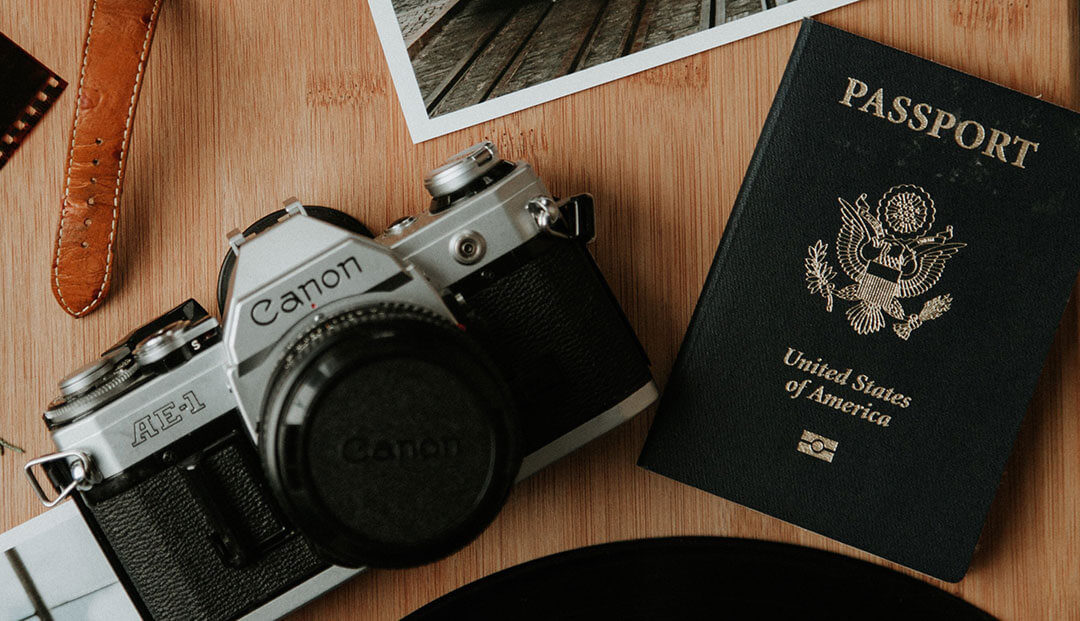If you’re travelling anywhere in the world, it’s good to know as much as you can about the basics of the country you’re visiting. From entry requirements and currency to whether you need a converter for your gadgets, we’ve got you covered.
Here’s a breakdown of everything you need to know when planning your South African vacation.
Everything You Need to Know Before Travelling to South Africa
Passport
Travellers of all nationalities will need passports that are valid for at least 30 days beyond the period of intended stay. A return ticket or ticket to another destination is also required, as well as evidence of sufficient funds.
Visitors to South Africa are required to have at least one blank, and unstamped visa page in their passport, every time they enter the country. This page is in addition to the endorsement/amendment pages at the back of the passport. Nationals of countries requiring a visa before travelling to South Africa require two unstamped, blank pages in their passport, for issuing a visa prior to departure and stamping upon entering South Africa.
Note: South African Immigration Authorities do not accept loose leaf temporary travel documents. Passport and visa requirements are liable to change at short notice. It is important that all travellers confirm the entry requirements with their relevant embassy or consulate.
Visa Requirements
Entry requirements for people travelling to South Africa are subject to change at a moment’s notice, so travellers are advised to confirm with their relevant embassy or consulate prior to departure.
- Entry requirements for United States citizens: United States nationals require a passport valid for at least 30 days beyond intended travel. No visa is necessary for stays of up to 90 days.
- Entry requirements for UK citizens: British nationals travelling to South Africa require a passport valid for 30 days beyond the date of intended travel, but no visa is needed for stays of up to 90 days if the passport is endorsed British Citizen or British Overseas Territories Citizen. Those whose passports state British National (Overseas) may stay up to 30 days without a visa.
- Entry requirements for Australian citizens: Australian nationals need a passport valid for 30 days beyond the date of intended travel, however, no visa is needed for stays of up to 90 days.
- Entry requirements for German citizens: German nationals need a passport valid for 30 days beyond the date of intended travel, but no visa is necessary for says of up to 90 days.
Travelling with Children
Travelling to South Africa with children who are considered minors (children under 18 years of age) can be an arduous process if you’re not fully prepared. The South African Department of Home Affairs issued new regulations from 1 December 2018, specifying that all minors are required to produce an Unabridged Birth Certificate, in addition to their passport, for all international travel to and from South Africa.
Travellers may also be required to produce supporting documents if they fall into a specific category, such as one parent travelling with a minor who may need to produce a written letter of consent from the parent who isn’t travelling, but whose details are listed on the Birth Certificate. For this reason, we urge all visitors travelling with children to confirm entry requirements with the relevant embassy or consulate before departing for South Africa.
For more information, visit the South African Department of Home Affairs.
Currency
The currency in South Africa is the Rand (ZAR), which is divided into 100 cents. Major international credit cards are widely accepted throughout the country and ATMs are widely available in major cities.
Commercial banks and Bureau de Change will exchange foreign currency. Visitors should be vigilant when drawing cash from ATMs, as con artists are known to operate there. All commercial banks will exchange foreign currency.
For the latest exchange rates, have a look at XE.
Vaccinations
Travellers planning to visit South Africa are not required to receive any vaccinations prior to arrival unless they are travelling from areas infected by yellow fever, in which case they must carry a vaccination certificate.
Travellers planning to visit the bush should consider malaria prophylaxis as there is a malaria risk in the low-lying areas of the Northern Province and Mpumalanga (including the Kruger National Park), as well as northeastern KwaZulu-Natal.
Medical facilities in South Africa are good in major cities, but travellers are advised to take out medical insurance prior to their travels, as many private doctors and hospitals require upfront payment.
Electricity and plugs in South Africa
The electrical current in South Africa is 230 volts, 50Hz. Standard plugs are the round, three-pin plugs and round, two-pin plugs. Travellers from the UK, Europe, Australia and most of Asia and Africa, where standard voltage is between 220 – 240 volts, are able to use their appliances without a converter.
Travellers from the US, Canada and most South American countries, where the standard voltage ranges from 100 – 127 volts will require a voltage converter when using their appliances in South Africa.
We want to hear from you!
Do you have any pre-travel questions about your trip to South Africa? Share them below in the comments section and we’ll answer any questions you may have!
Book your trip to South Africa! Find out more information on things to do, places to go and people to see inour South Africa destination guide.


A dust mask and goggles are advisable if on Safari in view of the fact that there are drought areas.
Tea bags need to be taken if you want your usual cup of tea flavour.
Don’t forget a torch as some areas have regular power cuts.